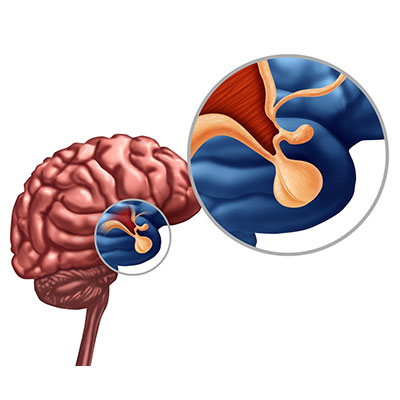Pituitary Disorder Treatment in Vijayawada
The pituitary gland, often termed the "master gland," is a small, pea-sized structure located at the base of the brain within the sella turcica of the sphenoid bone. Despite its size, it plays a crucial role in regulating various physiological processes by secreting hormones that influence other endocrine glands, such as the thyroid, adrenal glands, and reproductive organs. It is divided into anterior and posterior lobes, each responsible for producing specific hormones; for example, the anterior lobe secretes growth hormone, prolactin, adrenocorticotropic hormone (ACTH), and others, while the posterior lobe releases oxytocin and vasopressin. The pituitary gland's importance lies in its regulatory function, maintaining homeostasis and coordinating growth, metabolism, reproduction, and stress responses. Disruptions in its function can lead to conditions such as hypothyroidism, gigantism, dwarfism, or Cushing's syndrome. Its central position in the endocrine system makes it vital for overall health, ensuring that various bodily functions operate harmoniously. Thus, the pituitary gland is integral to maintaining the body's internal balance and adapting to changing physiological needs. If you are facing any problems with it, feel free to walk in to Esha Endocrine Centre to consult leading endocrinologist, Dr. S.L. Sravya.
Functions of the pituitary gland:

- Producing growth hormone (GH) to stimulate growth and cell reproduction
- Secreting thyroid-stimulating hormone (TSH) to regulate thyroid activity
- Releasing adrenocorticotropic hormone (ACTH) to stimulate adrenal glands for cortisol production
- Producing prolactin for milk production in breastfeeding women
- Secreting luteinizing hormone (LH) and follicle-stimulating hormone (FSH) to control reproductive functions
- Regulating water balance via antidiuretic hormone (ADH)
- Producing oxytocin, which causes uterine contractions and milk ejection
- Acting as a control center, it responds to signals from the hypothalamus to coordinate endocrine activity across various glands, ensuring homeostasis and proper development.
Different disorders of the pituitary gland:
- Pituitary Adenomas: Benign tumors that can cause hormonal hypersecretion (e.g., prolactinoma, GH-secreting) or hyposecretion due to compression.
- Hypopituitarism: Deficiency of one or more pituitary hormones, leading to symptoms like fatigue, weight loss, and hypotension; caused by tumors, trauma, or ischemia.
- Acromegaly: Excess growth hormone, usually from a somatotropic adenoma, resulting in enlarged bones, hands, and facial features.
- Prolactinoma: Most common pituitary tumor producing excessive prolactin, causing galactorrhea and amenorrhea in women, and infertility in men.
- Cushing's Disease: Excess ACTH secretion from pituitary adenoma, leading to cortisol overproduction, causing obesity, hypertension, and skin changes.
- Diabetes Insipidus: Deficiency of antidiuretic hormone (ADH) due to hypothalamic or pituitary damage, causing polyuria and polydipsia.
- Empty Sella Syndrome: Condition where the sella turcica appears empty on imaging, often asymptomatic but can cause hormonal deficiencies.
- Sheehan's Syndrome: Postpartum necrosis of the pituitary due to severe blood loss, leading to lactation failure and secondary adrenal insufficiency.
- Thyrotropic Adenomas: Rare tumors secreting TSH, causing hyperthyroidism.
- Craniopharyngiomas: Benign tumors near the pituitary that can disrupt hormone production and cause visual disturbances.
Endocrinologists play a crucial role in diagnosing and managing pituitary disorders as well as Pituitary Gland disorders treatment in Vijayawada, which can affect hormone production and lead to various health issues. They conduct comprehensive evaluations, including hormonal blood tests, imaging studies like MRI, and clinical assessments to identify conditions such as tumors (adenomas), hypopituitarism, or hyperpituitarism. Once diagnosed, Best pituitary specialist in Vijayawada develop tailored treatment plans that may involve medication to regulate hormone levels, surgical interventions for tumor removal, or radiation therapy if necessary. They also monitor patients over time to adjust treatments, manage side effects, and address complications. By restoring hormonal balance, Best pituitary tumour doctor in Vijayawada help improve symptoms like vision problems, hormonal imbalances, fatigue, and fertility issues, ultimately enhancing patients’ quality of life.
